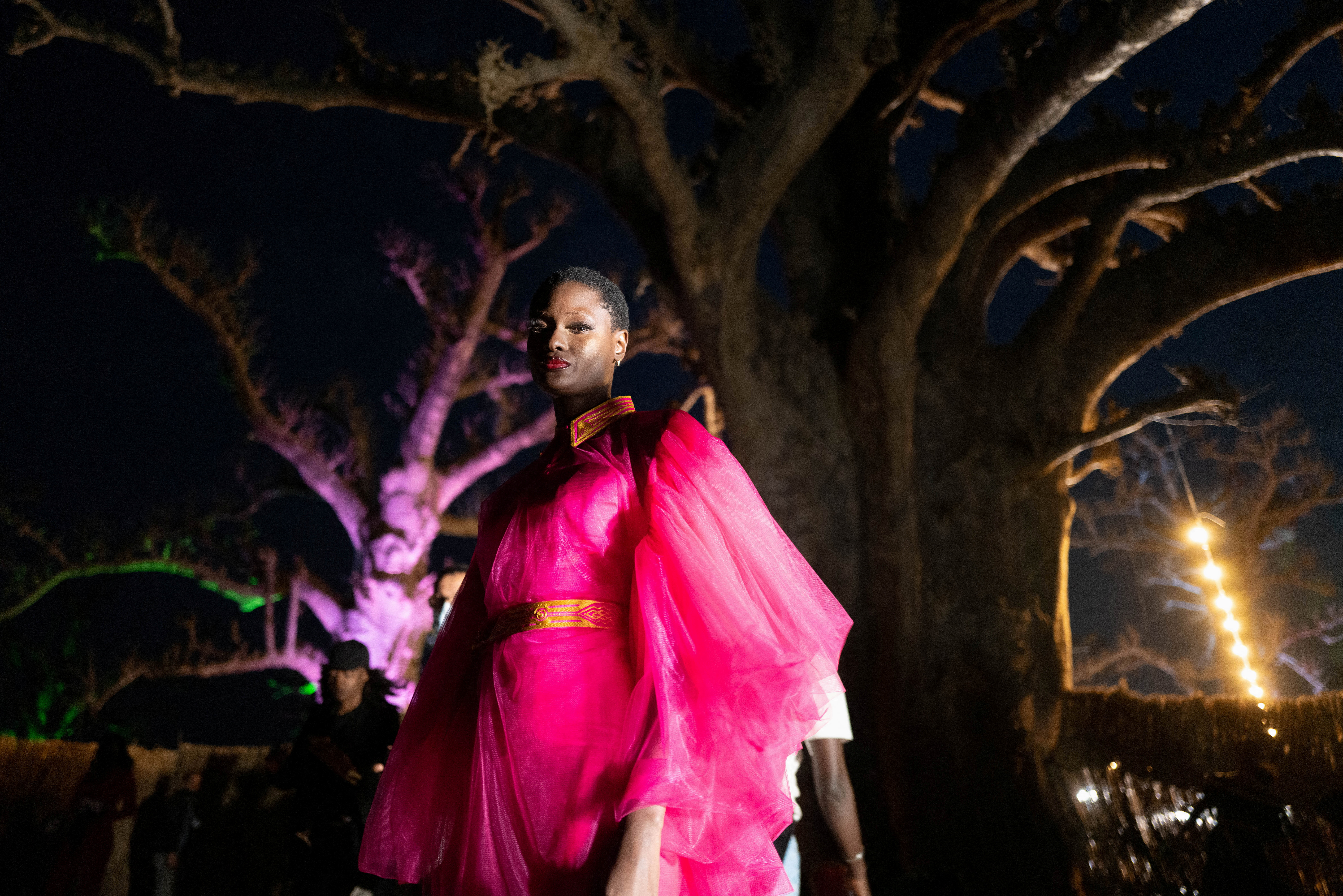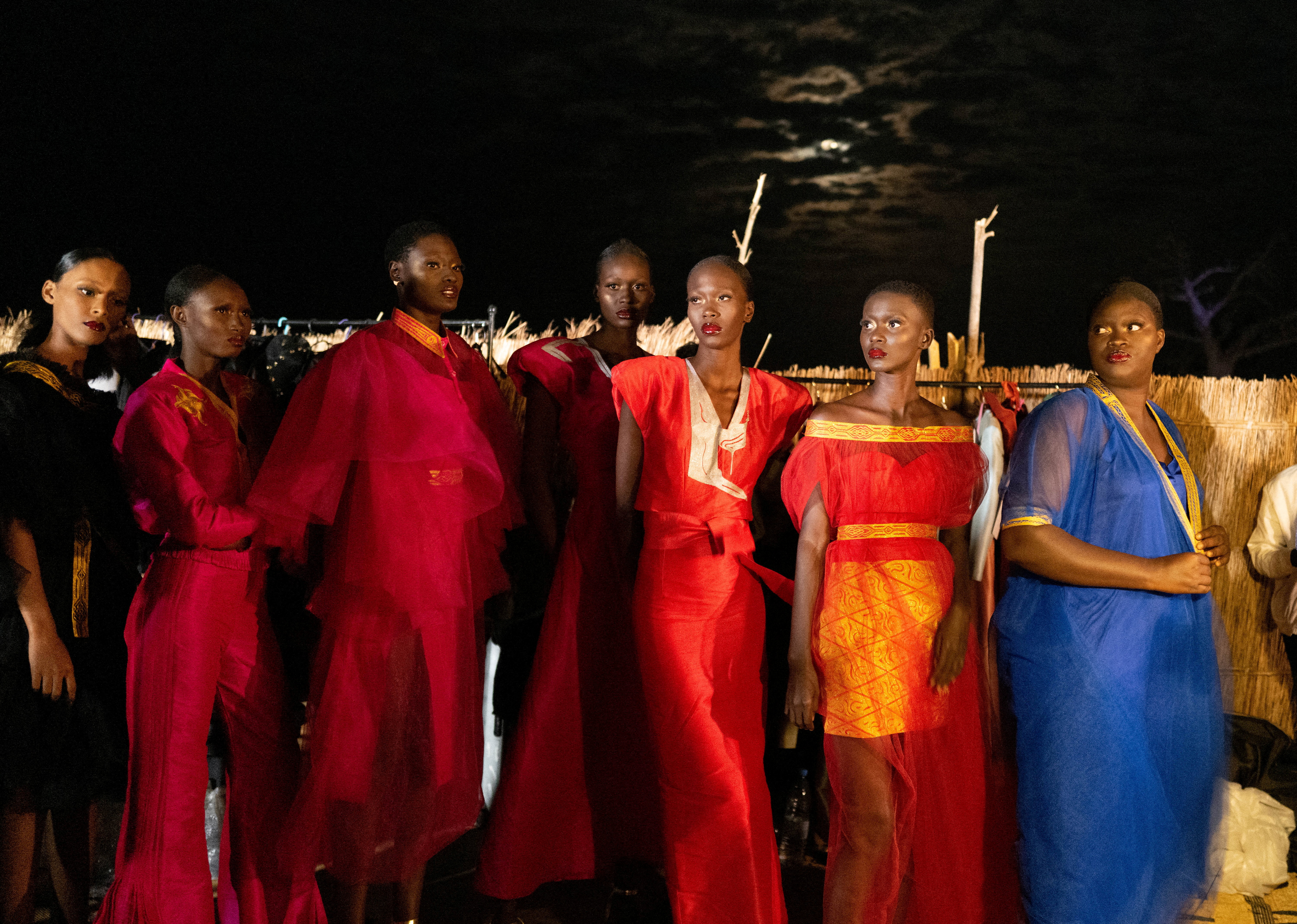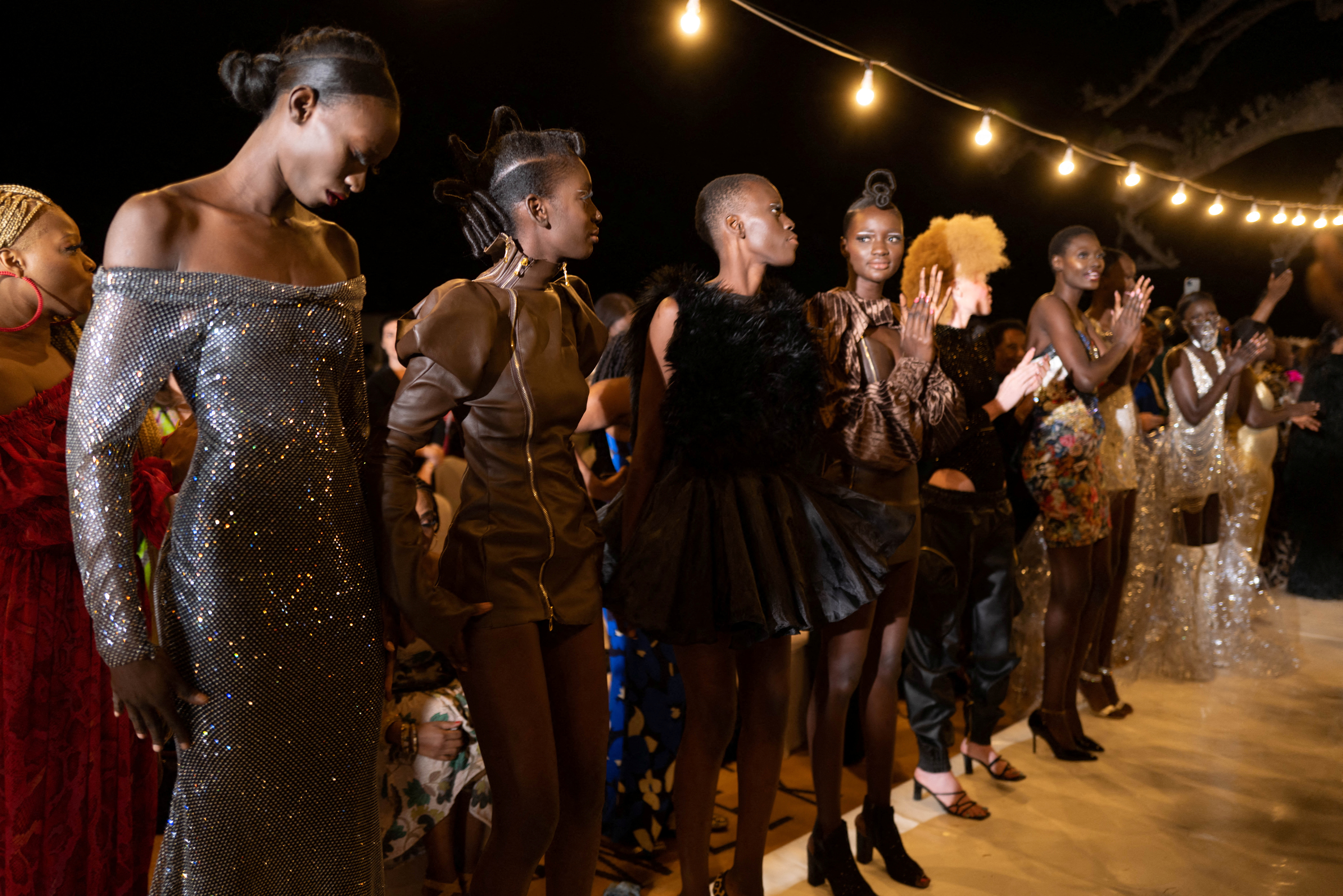
Senegal’s Fashion Week seeks sustainable practices
Senegal’s Fashion Week returned to the outdoors for a second time, following Covid-19 guidelines and a deliberate effort to remind the fashion industry of responsible environmental practices.
At the foot of a towering baobab tree outside Senegal’s capital Dakar on Saturday, cameras flashed in the waning dusklight as 20-year old Najeebah Samuel strode down the catwalk to zealous applause.
Born with cerebral palsy, Samuel, 20, was the first of two dozen models of all shapes and sizes to take the runway at Dakar’s 19th annual Fashion Week event, held at the weekend with the dual themes of inclusiveness and sustainability.


Featuring designers from across Africa, the Dakar Fashion Week is one of the continent’s longest-running fashion exhibitions.
The organisers of this edition chose to return to the baobab forest to remind attendees of the fashion world’s responsibility to operate in a sustainable way.
They were forced outdoors to abide by COVID-19 restrictions last year.

Textile production generates 1.2 billion tonnes of carbon emissions annually, and if current rates continue, the industry could account for more than a quarter of global emissions by 2050, according to a 2015 study from the Ellen MacArthur Foundation.
Known by her brand name Adama Paris, Ndiaye, who also created the first Black Fashion Week show in the French capital, routinely attaches progressive themes to Senegal’s marquee fashion event.
She sets high minimum quotas for female designers and once banned models using skin depigmentation cream to promote self-acceptance. She chose inclusiveness as one of this year’s themes to contrast the often rigid beauty standards of Western fashion.
“I don’t want to live with fashion as the European diktat tells us to,” Ndiaye said. “I want women who represent so many different things, more than just bodies.”
Reuters/Hauwa Abu
